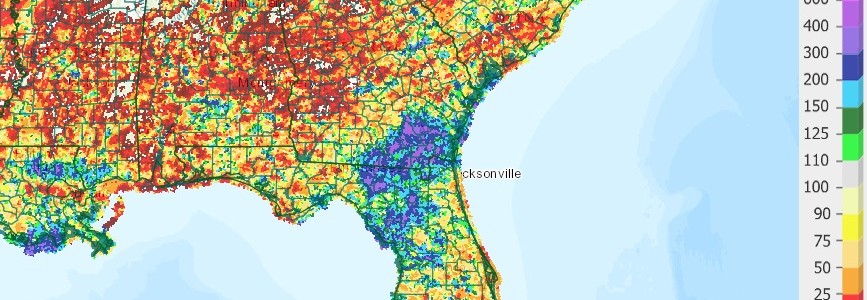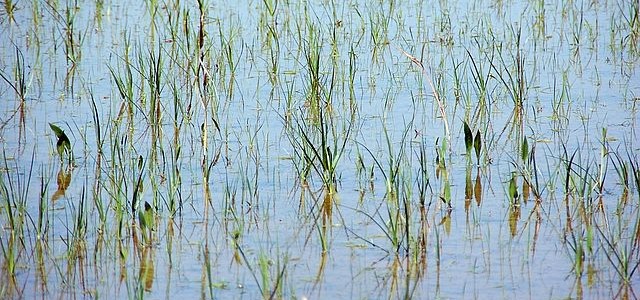Crops
-

Vox.com had an interesting story online yesterday discussing the boom and bust of agriculture in Saudi Arabia due to their overuse of groundwater. According to the story, in the 1970s, the government allowed farmers to dig as many wells as they wanted to grow crops. Agriculture boomed, and Saudi Arabia for a while became the…
-

Brad Haire reported in the Southeast Farm Press this week that farmers in the Southeast are being urged to harvest as soon as possible and to plant cover crops this winter to protect against the expected impacts from the strong El Niño this winter. Rains could be as much as 50 percent above normal, leading…
-

Citrus farmers in California are building private reservoirs on their own land hoping to protect their orchards against the loss of water in future droughts when water is tightly controlled and water users are pitted against each other. The reservoirs, which are more like giant farm ponds than true reservoirs which rely on a dammed…
-

The 7-day rainfall we’ve seen in the Southeast shows that it was feast or famine for many areas. The map below details the percent of normal each area received based on radar estimates. It shows that southeast Georgia received the heaviest rain from the remains of Erika, with some areas receiving more than 500 percent…
-

As I was driving home from the airport today, I heard this interesting story about attempts to grow rice in Wisconsin on National Public Radio. You can listen to the story here. A Marquette University professor is trying to grow rice in the climate of Wisconsin to see if he can get it to produce…
-

The Southeast Farm Press had an excellent article about producing high-quality hay this week. It describes the importance of weather conditions and taking advantage of dry spells while using equipment to help the hay dry down more quickly. You can read the article here.
-

I ran across this article today on the impacts of warming climate on the wine-making industry in Quebec, Canada. It starts with one of the best lines I have ever read in a climate change article. “Crops are drying out, cattle are too hot to have sex, and the gelato industry is slowly melting away.…